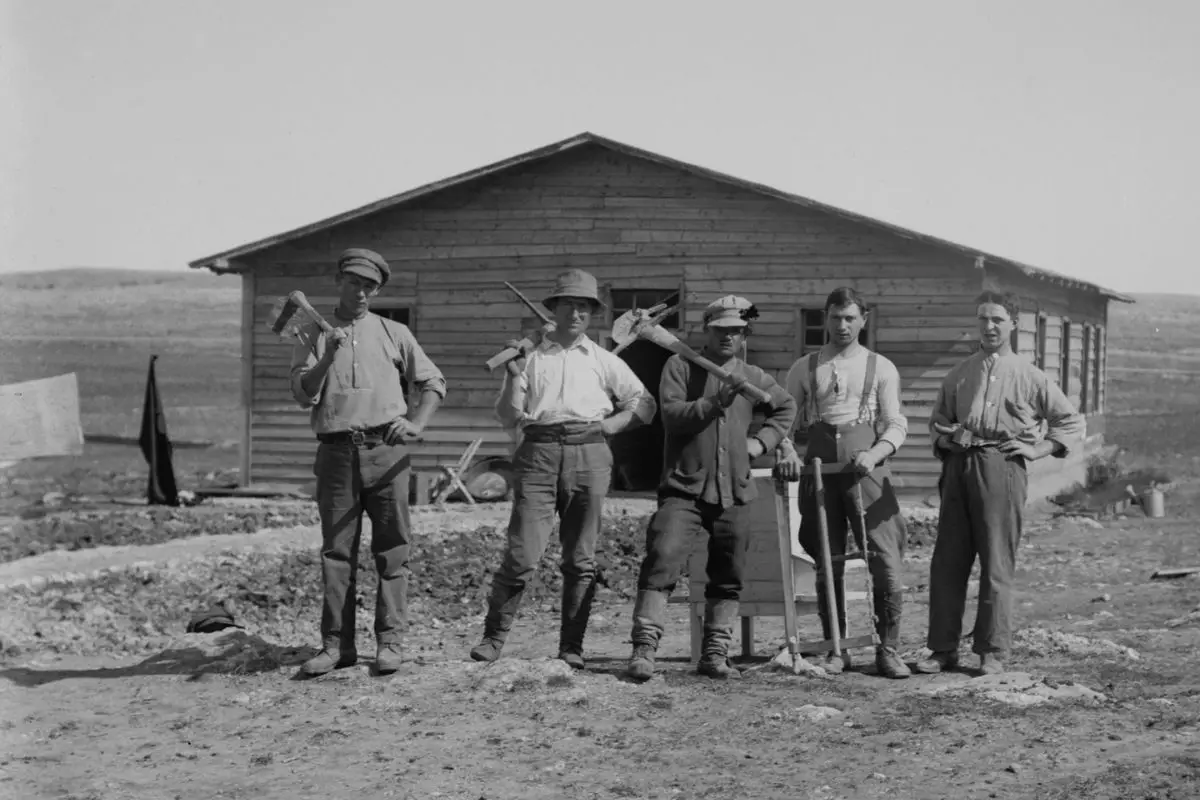The 17th century was certainly a defining period for New Hampshire. It was during this time that English settlers arrived and began to create communities here.
These communities essentially relied upon gathering natural resources found across New Hampshire and then sending them back across the seas to Europe.
For the indigenous Abenaki tribes, this meant that life as they knew it was about to completely change. The English pretty much took over the area and many of the Abenaki were pushed off their own lands.
Sure, there were instances where the Abenaki and English worked together somewhat peacefully, but there were also many fights and battles between the two cultures.
And by the beginning of the 18th century, the majority of the Abenaki tribes had completely disappeared from the area, and as such New Hampshire became a Great British colony with four major settlements of English migrants ruling the land.
But why did the English make their way to New Hampshire in the first place? Throughout this article, we’re going to find out.
Why The English Came To New Hampshire – The Three Main Industries.
So, English investors organized for several groups of settlers to make their way to New Hampshire during the early 1620s.
The intention here was for these settlers to set up outposts in New Hampshire and make money from the natural resources and industries that the now-state was known for.
During this period in time, New Hampshire was renowned for three main industries: Fish, Fur, And Forests. And it was these three F’s that essentially drew the English to New Hampshire.
So let’s take a more in-depth look at why these industries compelled the English to colonize New Hampshire.
1. Fish
During the 1600s The Atlantic Ocean that was very close to New England was teaming with massive schools of fish. In fact, there was such a high number of schools of fish that many deemed the waters as the home to everlasting fish.
Many believed that the sea could never run out of fish because there were so many. Some even said that you could probably walk across the ocean by walking on the backs of fish. So, you get the picture with the vivid imagery – there were lots of fish.
One of the more common fish found in these waters was the cod. Cod was and still is, a staple of many Europeans’ diets. It’s a pretty inexpensive food source, and during this time its popularity was skyrocketing.
So many fishermen were making their way over to New Hampshire to take advantage of the abundance of cod in the Atlantic Ocean so they could ship the fish back to Europe.
And so began the Fisherman settlement in New Hampshire. It was very simple, many fishermen had small shacks that were big enough to sleep and eat in.
The fishermen used large nets to scoop the fish out of the waters and would load their boats full to the brim before returning to shore and laying the fish out in the sun to dry out to preserve them. Once they were dry they would be loaded back onto ships and carted back to Europe to be sold.

2. Fur
Fish were not the only animals in abundance around this time in New Hampshire. There were many animal inhabitants, including the beaver whose population ran upwards of over 100,000.
These creatures didn’t tend to live so close to the shores, and instead could be found by lakes and rivers inland.
Beavers were of interest to humans due to their warm fur coats that could be turned into clothing items such as hats and coats. This type of fur was very popular across Europe and investors had become wise to the fact that there was a lot of money to be made in this business.
During the late 1620s, an English Investor named John Mason started a company in New Hampshire that specialized in supplying beaver furs to the English.
For this business over 100 English individuals were sent to New Hampshire. These individuals were instructed to break off into small groups and build outposts across the river area.
From here thousands of beavers were trapped and skinned quickly to ensure their pelts didn’t spoil. They would then be cleaned and dried and then sent back to England.
Many of the settlers also formed partnerships with the Abenaki where they helped teach the English how to successfully trap beavers. In return, the English gave the Abenaki tools and other objects the tribes desired.
So many beavers were trapped so quickly during this period that the settlers soon had to move even further inland in search of more. By the middle of the 17th-century beavers in New Hampshire were close to extinction.
3. Forests
And last but not least, there were trees. At the time that the English settlers arrived in New Hampshire, it was covered in rich, thick forestry. There were many different tree types: birch, chestnut, pine, oak, and maple. You name it, it was probably there.
The English came to New Hampshire for their forestry to use it for timber to build various things. It would build houses, bridges, wagons, barrels, tools, and much more. They also required large quantities of wood to heat their homes and food.
It didn’t take the English long to start chopping down pretty much any tree within their radius. This timber also helped to build ships which were vital to all three industries if they wanted to transport the goods back to England. This meant that pretty soon there were shipbuilding operations across the seacoast.
There were also many other uses for the trees in the area, so these settlers got to work chopping and cutting down many of the trees. In fact, it didn’t take all that long until they had cut down most of the forestry that was applicable to them.
Final Thoughts
Hopefully, now, you have learned a little more about why English settlers made their way to New Hampshire during the 17th century.
Essentially, New Hampshire had access to natural resources that the English deemed as valuable and so traveled over, and settled in the area to exploit these resources and make as much money as possible from them.
This happened to the point that many of the creatures such as fish and beavers faced possible extinction in these areas.
Obviously, this was not well received by the Abenaki who had always tried to ensure the balance in the area. They were careful not to disrupt the balance and only took what they needed to survive.
In fact, they always honored any animal for their sacrifice and made sure not one part of the said animal was wasted. And when the settlers came over they brought over many diseases that they already had immunity to which wiped out many of the Abenaki.
There were some partnerships between the tribes and the settlers, but as more and more English settlers traveled to the land, they were eventually pushed off from their very own lands.




